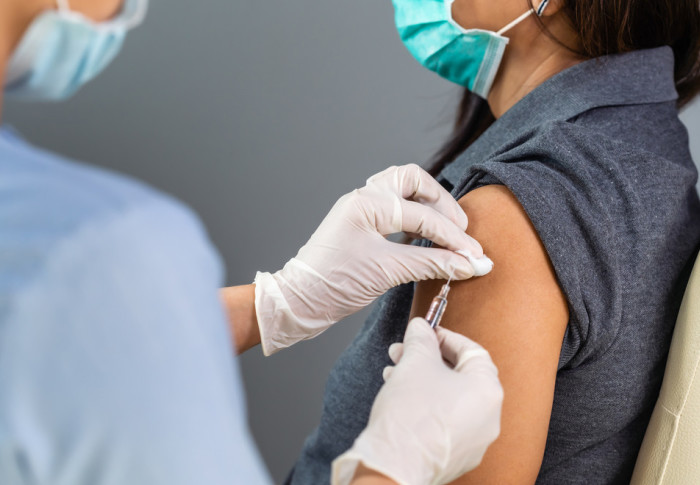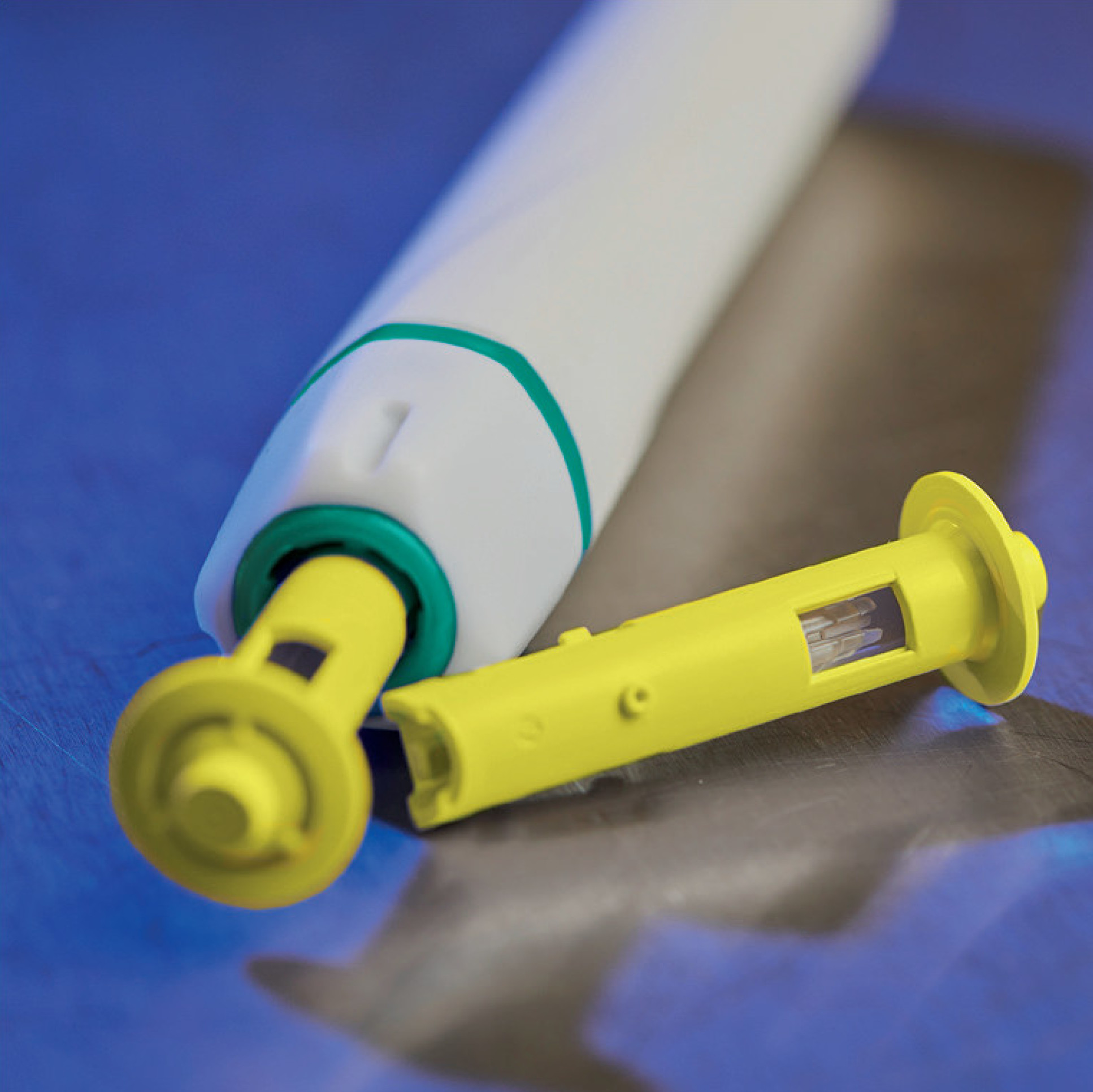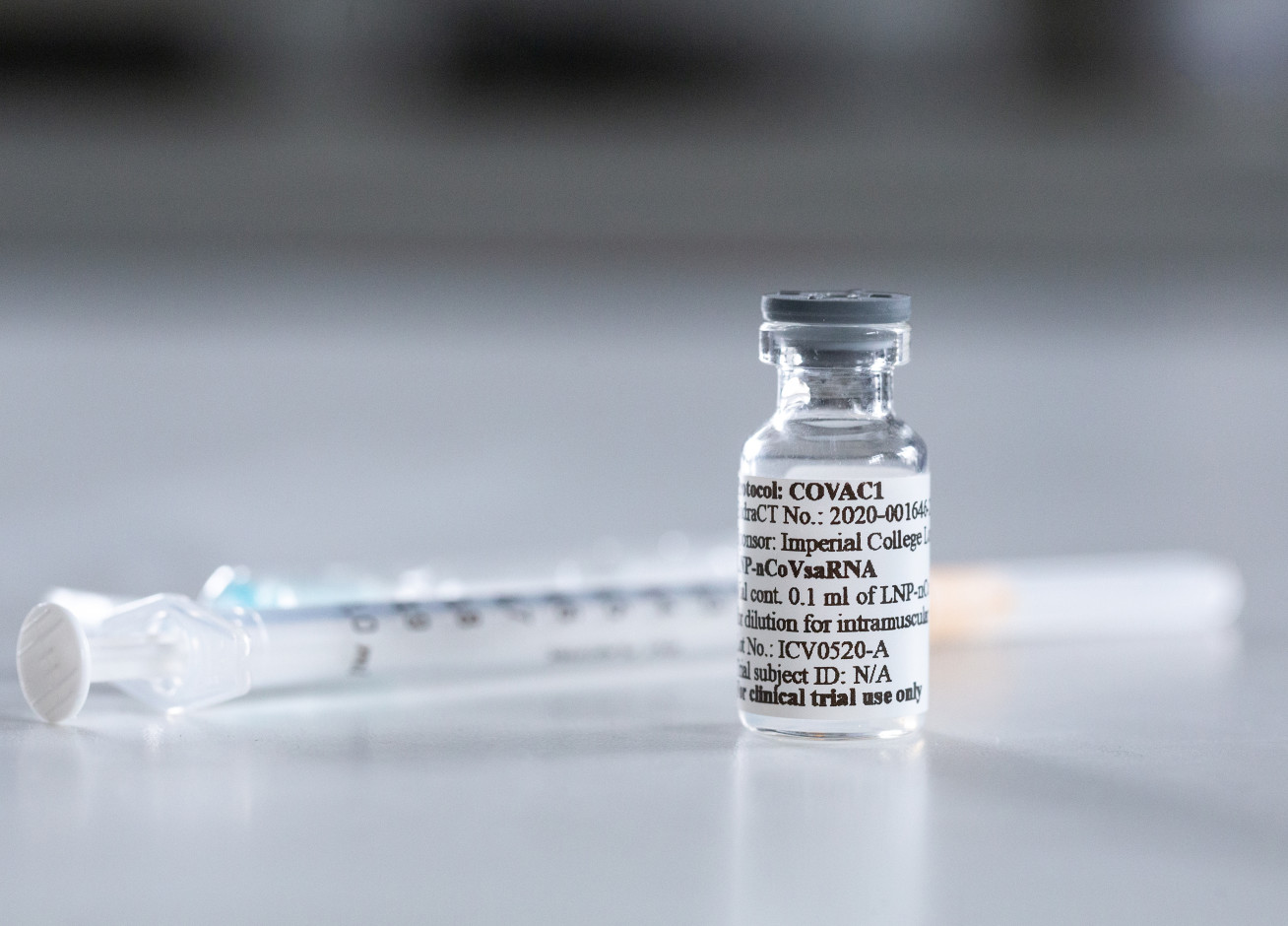Vaccine collaboration could overcome cold chain issues for RNA-based vaccines
by Ryan O'Hare

Imperial vaccine researchers are collaborating with industry partners to develop RNA vaccines stable at temperatures up to 40C.
The project, which will see Imperial researchers partner with UK biotech company Enesi, has the potential to overcome current cold-chain issues associated with RNA vaccines, eliminating the need to keep doses frozen at temperatures well below 0C.
According to the researchers, the ability to create such heat-stable, syringe-free vaccines could minimise cold chain requirements for global deployment and mass vaccination programmes with RNA-based vaccines.
Cold chain issues
Currently, Pfizer-BioNTech’s vaccine is the only RNA-based COVID-19 vaccine approved in the UK. But cold chain logistics remain a challenge for rollout, with specialist transport and storage equipment needed to keep doses of the vaccine at temperatures close to -80C before use.
Eliminating cold chain supply and the use of needles and syringes could be an important barrier to rapid deployment of vaccination efforts globally. Prof. Robin Shattock Department of Infectious Disease
The Imperial-Enesi collaboration will investigate the potential to create thermostable, solid dose vaccines based on Imperial’s self-amplifying RNA (saRNA) technology and novel Polyplex DNA/RNA stabilisation technologies.
In June this year, Imperial began clinical trials of a COVID-19 vaccine candidate, based on a new self-amplifying RNA (saRNA) technology.
The platform has the potential to revolutionise vaccine development and enable scientists to respond more quickly to emerging diseases.
Enesi’s ImplaVax platform enables the development of fixed-dose vaccines which can be delivered via a needle-free device into the skin, with minimal training.
Positive early results
Early stages of the work to assess the feasibility of creating a thermostable and immunogenic, solid dose DNA vaccine has been completed successfully.
Based on these results, researchers are advancing the work to develop and test RNA vaccines using saRNA, Polyplex and ImplaVax technologies.

The successful production of a solid dose RNA vaccine, and demonstration of an appropriate immune response could lead to a further partnership to develop at pace an ImplaVax version of Imperial’s RNA vaccine against SARS-CoV-2, which is based on the virus’ spike protein and is being investigated in a Phase I/II trial in over 400 healthy subjects.

Professor Robin Shattock, Head of Mucosal Infection and Immunity within the Department of Infectious Disease at Imperial College London, said: “Our innovative saRNA technology used in our COVID-19 vaccine holds great potential in the fight against this disease, and many others.
"However there remains a number of challenges to address to be able to provide broad coverage against the virus throughout the world population, including in terms of storing, shipping and administering a vaccine at such an unprecedented scale.
“As we make good progress towards evaluating the efficacy of our vaccine, it is critical that in parallel we explore ways to potentially address those challenges, particularly in terms of minimising and ideally eliminating cold chain supply and the use of needle and syringes, which could be an important barrier to rapid deployment of vaccination efforts globally.”
We are hopeful that our collaboration combining our next-generation technologies, will solve these challenges for the benefit of the global population David Hipkiss CEO of Enesi Pharma
David Hipkiss, Enesi Pharma CEO, said: “Vaccines have been front-page news in recent months with astonishing progress being made since the outbreak of the COVID-19 pandemic.
"This global awareness has highlighted not only the potential of novel vaccine design and development technologies such as mRNA and adenoviral vectors but also the challenges of mass vaccination and in some cases the need for extreme ultra-cold chains for the distribution and storage of products, and the highly complex challenge of deployment and administration that follows.
“We are particularly excited with the progress in our collaboration with Prof. Shattock and his group at Imperial given the breakthroughs made with mRNA vaccines.
"We are hopeful that our collaboration combining our next-generation technologies, will solve these challenges for the benefit of the global population and facilitate the administration of mRNA vaccines anywhere, any time and by anyone independent of geography or socioeconomic circumstance.”
-
This article is based on materials from Enesi Pharma.
Article text (excluding photos or graphics) © Imperial College London.
Photos and graphics subject to third party copyright used with permission or © Imperial College London.
Reporter
Ryan O'Hare
Communications Division